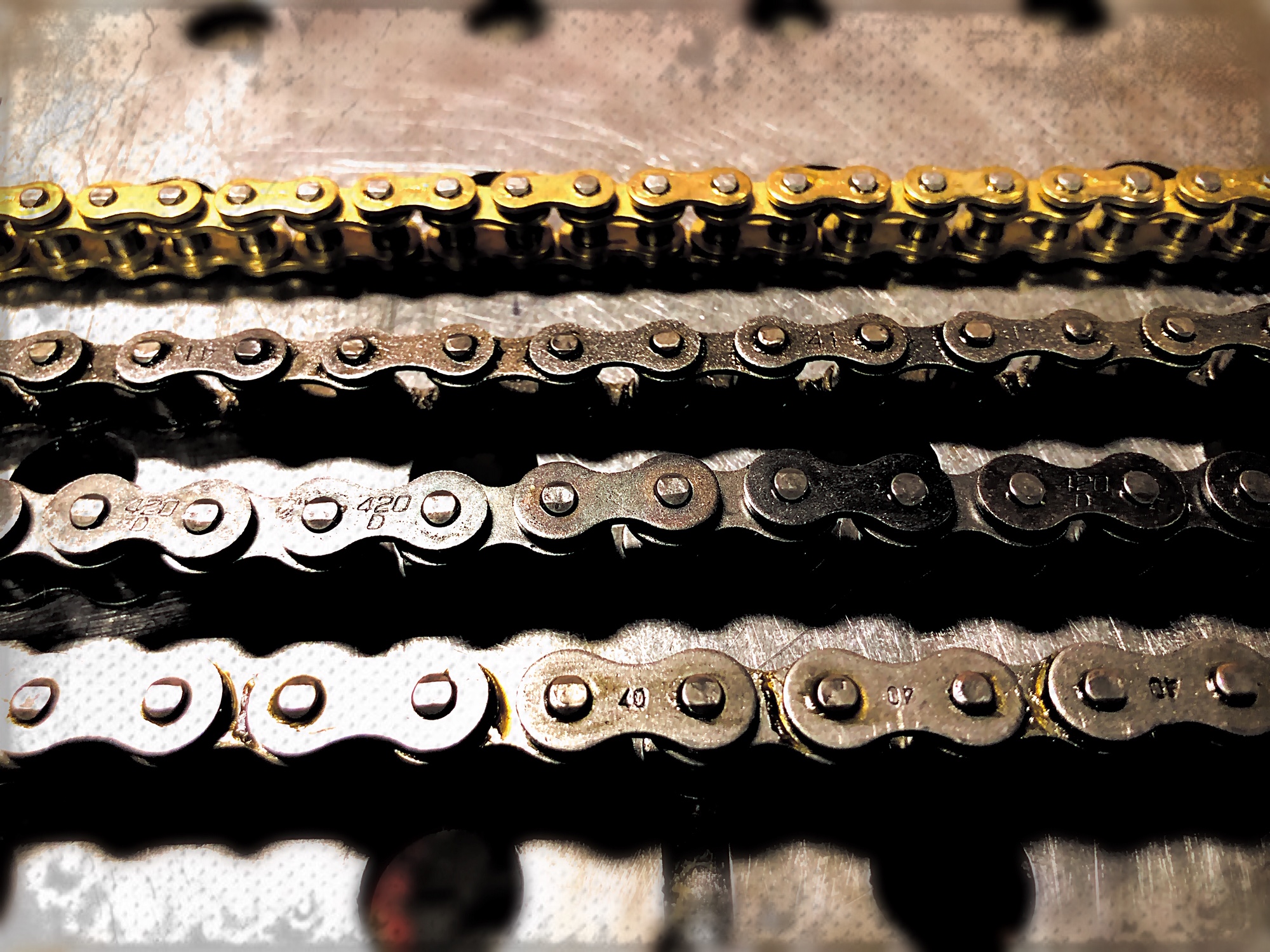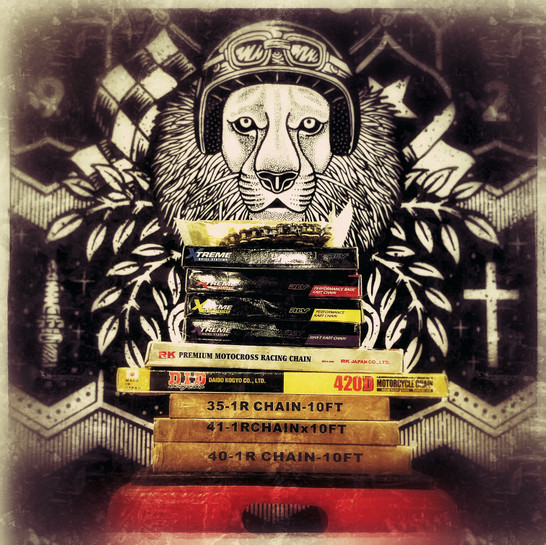 "Hey, what chain you runnin'?"
"Hey, what chain you runnin'?"
You will hear this hollered around the shop every day. A very basic question that few do not know the answer to. Don't fret, hopefully this will help out. We will discuss the chains we deal with the most in the shop as well as give our recommendations.

So...what chain are you running? The above chart doesn't cover them all, but does cover what we use on mini-bikes and go-karts. Sometimes your chain will already come stamped with it's # on it. If not, we will need to find the pitch. We can do this on the chain or on the sprocket (center of tooth to the center of the next tooth).
#35 Chain: Typically seen on small wheeled mini-bikes and dead axle karts. This smaller chain is lightweight and comes with more racing options than it's bigger counterparts. We stock a variation of clutches and sprockets to fit this chain.
#40/41/420 Chain: A little more complicated with this series. All will have a 1/2" pitch.
- We use the #420 chain the most out of these 3. It's not as wide (from side plate to side plate) as the #40 chain which helps to not slap your driven pulley or frame if it's in a tight fit. #420 will have more strength than the #41 chain because the side plates will be taller.
- #40 will be the beefiest chain in this class. This will help with thicker sprockets since there is more room between the side plates.
- #41 will look just like the #420 chain, but will stand shorter.
#50 Chain: This chain didn't make the chart, but it will have a 5/8" pitch. This chain is what will come on the TrailMaster 150/300 karts as well as other brands in this engine category.

Luckily for us, the top 2 chain sizes in shop would be #35 and #420 chain. There are different qualities for these chains as well.
- Our stock #35 Chain and stock #420 Chain is a good option for mild applications and our most affordable chain. They will tend to "s t r e t c h" after a ride or two, leaving you to make some adjustments to take the slack out of the chain. (We recommend 3/8" of play in chain between both of your sprockets.)
- Basic Performance Chain will be the next step up. Pre-stretched and oiled, these chains will last much longer than stock chain. Our favorite brand of chain is RLV for #35 and DID for #420. If you're running any type of performance parts in your engine, we recommend atleast the Basic Performance Chain.
- "I love gold." Our favorite chain out here would be the Gold Performance Chain. High Tensile strength, pre-stretched and oiled, this is the only way we roll. It's the best of the best but is also the mostly costly of the bunch. So be sure to check your measurements before you start cutting links. RK Gold Premium #420 Chain is just about on every toy we have in the shop. We currently also stock the Gold/Black chain for #35, which is just as strong but more affordable than All Gold.

Tools of the Trade.
Chain Breakers are a mini-bike/go-kart garage essential. I mean, you could use an angle grinder but this tool makes life a lot easier. They are essential because you will rarely get chain that is the correct length. Here's our rule of thumb for chain length:
- 3' of chain for a Go-Kart
- 5' of chain for a Mini-Bike
- 10' for anything stretched
Chain Lube is another garage essential, especially if you spent the money on high end chain. We prefer the aerosol can with a straw so that we can pin-point where we need the lubrication.
Chain Guards will help with keeping hair, clothing, and appendages out of harm's way. Also helps with messes since you'll be slinging around chain lube.
Chain Rollers and Master Links should also get an honorable mention in this blog.


Stay tuned Race Team!
 US Dollar
US Dollar
 Australia
Australia
 Canada
Canada

